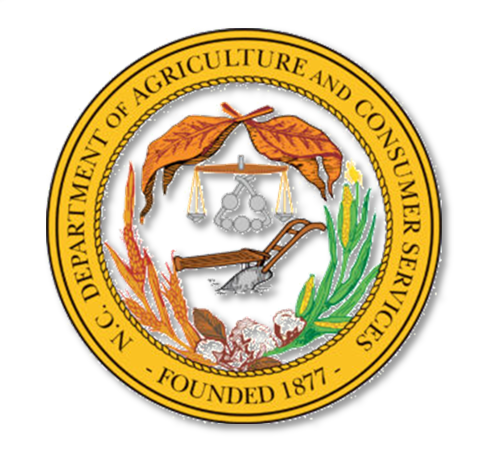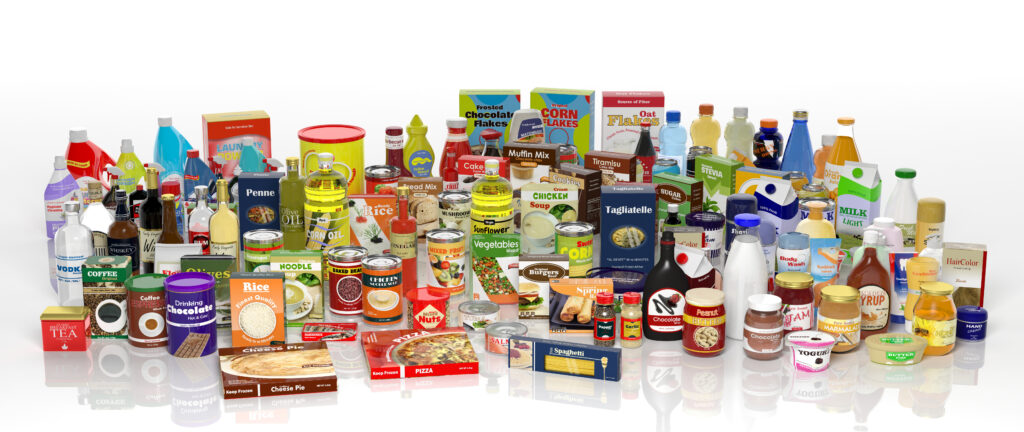Food Program: NC Department of Agriculture & Consumer Services
go.ncsu.edu/readext?887176
en Español / em Português
El inglés es el idioma de control de esta página. En la medida en que haya algún conflicto entre la traducción al inglés y la traducción, el inglés prevalece.
Al hacer clic en el enlace de traducción se activa un servicio de traducción gratuito para convertir la página al español. Al igual que con cualquier traducción por Internet, la conversión no es sensible al contexto y puede que no traduzca el texto en su significado original. NC State Extension no garantiza la exactitud del texto traducido. Por favor, tenga en cuenta que algunas aplicaciones y/o servicios pueden no funcionar como se espera cuando se traducen.
Português
Inglês é o idioma de controle desta página. Na medida que haja algum conflito entre o texto original em Inglês e a tradução, o Inglês prevalece.
Ao clicar no link de tradução, um serviço gratuito de tradução será ativado para converter a página para o Português. Como em qualquer tradução pela internet, a conversão não é sensivel ao contexto e pode não ocorrer a tradução para o significado orginal. O serviço de Extensão da Carolina do Norte (NC State Extension) não garante a exatidão do texto traduzido. Por favor, observe que algumas funções ou serviços podem não funcionar como esperado após a tradução.
English
English is the controlling language of this page. To the extent there is any conflict between the English text and the translation, English controls.
Clicking on the translation link activates a free translation service to convert the page to Spanish. As with any Internet translation, the conversion is not context-sensitive and may not translate the text to its original meaning. NC State Extension does not guarantee the accuracy of the translated text. Please note that some applications and/or services may not function as expected when translated.
Collapse ▲
Who is the Food and Drug Protection Division?
This Division of the Department of Agriculture and Consumer Services is comprised of the following programs:
| Food Program |
| Grade A Dairy Program |
| Animal and Pet Feed Program |
| Produce Safety Program |
| Drug Program |
| ISO Accredited Laboratories |
| Administrative Offices & Support Staff |
Food Program Goals:
- Enforce food safety & ensure compliance of firms under the Division’s jurisdiction
- Prevent adulterated and misbranded foods from entering the marketplace
- Promote and protect public health
- “Educate before and while we regulate”
Food Program Teams:
- Field Team
- Approximately 30 members, including: Food & Egg Inspectors, Field Supervisors, Technical Trainers and Home Processing Inspectors
- Compliance & Office Team
- Approximately 12 members, including: Compliance Officers, Supervisors, and Administrative Staff
- Agricultural Science Complex Laboratory Team
- Approximately 60 members, including: Microbiology, Microanalytical, Chemistry and Pesticide Laboratories
These three teams oversee more than 7,000 operational & seasonal firms throughout North Carolina. Field inspectors collected & laboratories analyzed more than 1,700 samples in 2019 and more than 1,000 in 2020 (Through the COVID-19 pandemic!).
While the Division can not produce an exhaustive list of all the foods they regulate, both because of the scope of regulation, and due to innovation & companies constantly developing new foods. If a company has questions about their food products, it’s advised to contact the Food Compliance Office for guidance.
Below are some of the more-commonly inspected foods covered by the Food Program:
| Breads, scones, muffins, biscuits | Cakes, fruit pies, pastries, cookies | Traditional jams & jellies | Peanut & nut butters | Granola and dry mixes |
| Candies, chocolates | Some dehydrated fruits & vegetables | Roasted coffee & tea | Popcorn & popcorn snacks | Dried herbs & spices |
| Repacked dry foods | Some BBQ sauces & vinegar | Canned fruits & vegetables | Seafood & shellfish products | Salsa, ketchup, chutneys |
| Pickles, mustard, relishes | Fermented foods | Fruit butters, herbs & garlic in oil | Custard, meringue pies | Cheese, butter, ice cream, frozen desserts |
| Fresh fruit dipped in chocolate | Bottled juices & other beverages | Dietary Supplements | Frozen fruits & vegetables | Shell eggs |

High-Risk Foods |
Low-Risk Foods |
| Foods implicated in food-borne illnesses | Foods rarely implicated in food-borne illnesses |
| Refrigerated, frozen and some shelf-stable foods | Mostly shelf-stable foods |
| High water activity foods (>0.86 aw) | Low water activity foods (</=0.85 aw) |
| Low acid content foods (pH > 4.6) | High acid content foods (pH </=4.6) |
| Foods requiring time & temperature control | Foods with high fat, salt and sugar content |
| Ready-to-eat refrigerated foods, pre-made salads & sandwiches, and high-moisture cakes (ex: carrot cake) | Breads, muffins, cookies and shelf-stable cakes |
| Low-acid canned foods (ex: canned beans and canned asparagus) | Traditional jams & jellies |
| Pickles, sauces, fermented foods and other acidified foods | Repackaged nuts, honey, spices and dry mixes |
| Cheese, butter, ice cream and other frozen desserts | Popcorn, roasted peanuts, peanut butter |
| Seafood & shellfish products | Granola, cereal, cereal bars, maple syrup |
| Bottled water, beverages, fruit & vegetable juices | Tea, coffee, lemonade and ice |
| Dietary supplements | Alcoholic beverages |
What will an inspection look like for my company?

- Initial inspections are required prior to a firm starting their operations. These inspections are initiated by the firm (a food manufacturer, processor, repacker or distributor) contacting the Compliance Office and speaking with a member of the Compliance Team about their operation. The firm will then receive an email with their Inspector’s contact information for scheduling the inspection and all applicable regulations to their food operations. There is no charge or fee for inspections from NCDA&CS Food Division.
- A courtesy visit, or pre-inspection may be requested through the Compliance Office.
- At the start of any inspection, an official Notice of Inspection will be issued to the most-senior individual at the company. A leader at the facility should plan to be present with inspectors during the pre-interview, inspection and exit interview process.
- Each inspection will have investigation into Good Manufacturing Practices for Human Foods (21 CFR 117) and a product inspection. Samples of raw ingredients, manufacturing water or finished products may be taken from wholesale manufacturers. Product labels and select records (ex: sanitation records, training records) from the firm may be collected for review.
- At the conclusion of the inspection, senior members of the firm and NCDA&CS staff will have an exit interview to discuss the inspection, any corrective actions taken during the inspection and corrective actions for the future. An observation sheet will be issued to the firm for their record keeping.
- This Division also investigates recalls, consumer complaints, and conducts re-inspections for firms with non-compliant findings.
- Inspection frequency is established and adjusted due to the risk of the food being manufactured.
Webinar & Important Contacts
| Daniel Gaines | Food Administrator |
| Daniel.Gaines@ncagr.gov | |
| Joan Sims | Food Compliance and Rapid Response Manager |
| Joan.Sims@ncagr.gov | |
| Minoo Mehrotra | Food Compliance Supervisor |
| Minoo.Mehrotra@ncagr.gov |
Food Program Headquarters:
Steve Troxler Agricultural Sciences Center
4400 Reedy Creek Road
Raleigh, NC 27607
Food Compliance Phone Number: (984) 236-2480

Suggested Links
Food Program website: www.ncagr.gov/fooddrug
Home Processing Resources & Application: https://www.ncagr.gov/divisions/food-drug-protection/food-program/fdpd-food-program-home-processer
Business Link NC – for new business resources: www.edpnc.com


